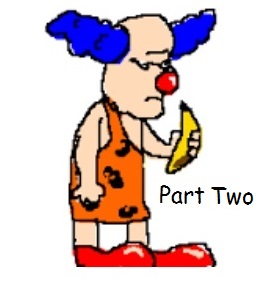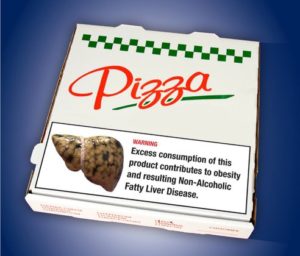
It seems that in many cases, people only take WFPB seriously once they’ve been diagnosed with something really serious, have tried everything else that doctors and faith healers could offer, and then stumble across a website or book advocating a plant-based diet. In their desperation they consider they have nothing to lose – well, nothing except excess fat, toxins, cholesterol, triglycerides, hypertension, inflammation, oxidative stress…
Reactive vs Proactive
We live in a society where you have to get ill before doctors are interested in you. A health system that can only react with pharmaceutical and surgical responses to already developed chronic diseases will only ever succeed in “managing” the symptoms and rarely treat the actual causes.
“The goal of our health system is not health; it’s profit for a few industries at the expense of the public good.”
And the forces that prevent our doctors from being proactive in using preventative rather than reactive medicine are firmly entrenched – both financially and politically.
“Whenever you see large masses of people making what look like “free choices” against their best interests, you can bet that subtle power is at work in the background.”
What a crying shame that our medical professionals and government representatives allow us to get chronically ill in the first place when, for over a century, there’s been powerful evidence that the leading causes of death in western societies can be almost completely avoided by simple dietary/lifestyle changes.
Of course, most of us don’t consider that each time we load processed products and animal foods into our bodies we may as well be loading bullets into a gun pointing straight at our heads. After all, the TV tells us that milk is good for us. The newspapers announce research showing we don’t need to worry about saturated fat any more. Websites reliably inform us that everything is fine in moderation.
“…when we take a step back …we see the mark of a medical industry whose profits depend on doctors’ unquestioning belief and persuasiveness— if not their arrogance.”
And so it comes as a bit of surprise when clothes start to feel tighter, stairs get steeper, breathing seems harder and the doctor informs us that we have diabetes.
“I was only eating what everyone else was eating.”
“The doctor never told me that I could avoid most diseases by eating a plant-based diet.”
“Surely if diet was so important then the government would have put health warnings on the packaging like they have with tobacco!”
Well, it took decades for governments to overcome the financial and political power of the tobacco industry. And Big Food is proving to be even more powerful and cunning than Big Tobacco.
“The structure of the medical industry makes it very difficult for decent and caring doctors to act contrary to the industry’s selfish, profit-seeking, defensive attitude. Those who buck the system face not just ideological pressure, but ideological pressure backed up by the subtle power of money. In some cases, even their license to practice may be challenged.”

What chance does the average person ever have of discovering the truth about diet and health when they are constantly bombarded with misleading signals? Surrounded on every street corner, in every supermarket, even in hospital and school cafeterias with irresistible laboratory-created “foods” that are designed to tempt and addict the unsuspecting consumer After all, the label says it’s low-fat and good for you – full of protein and low in carbs – contains one of your five a day – is fortified with 10 vitamins and minerals.
Doctors receive almost no education on nutrition while they are training. There are no colleges or institutes that can facilitate becoming qualified in plant-based nutrition. The only place (on earth) offering some form of certification is Dr T Colin Campbell’s eCornell plant-based nutrition certificate.
“The medical, pharmaceutical, and supplement industries figured out long ago that a nation of healthy eaters would be disastrous to their profits. They make much more money ignoring and discrediting the evidence for WFPB than by embracing it. So let’s take a look at these three industries and how they maximize profits at the expense of human health.”
I wanted to learn all about nutrition and diet and so worked my way through certificates and diplomas. In order to gain qualifications I had to ‘toe the line’ and churn out all the old stuff about healthy diet meaning oily fish, eggs, milk, lean meat, no processed food and lots of fruit and veg. As part of these courses, I had to learn how to encourage clients to consume the very foods that I knew from my own research would ultimately make them sick. And to practise as a State Registered Dietitian I would have had to spend 3-4 years going through the motions while all the while biting my tongue. I wasn’t prepared to sell my soul in this way.

This must be how certain young doctors may feel if have any idea at all of the preventative power of a plant-based approach to health care. But once qualified, they are tied to the wheel that will roll on and on in the same direction as it has done for decades – controlled by Big Pharma and incapable of straying from the party line, irrespective of what scientific evidence they stumble across on the way.
If you want an expert’s view on the reasons why Big Food, Big Pharma, Big Medicine and Big Government are reluctant to listen to the overwhelming evidence in support of plant-based nutrition as a solution to our chronic disease epidemic, you could do no better than to get hold of a copy of Dr T Colin Campbell’s “Whole“. A handful of quotes from this astonishing book are in bold italics throughout this article.
“But as we’ve seen, that training is limited by the reductionist way we do science. And like any group that “knows best,” doctors can be blind to other options that might be more viable than their own skills and tools. Some of them, out of twin desires to cure and to remain blameless, use their power advantage to bully and silence skeptics who might want to explore wholistic methods of healing. As a result, even the bravest and most open-minded patients usually feel that drugs and surgery are their best bet.”
A Ray of Hope
My previous GP, with whom I’d had some discussions about my own diet, announced to me some time after that he was going to go on a year’s sabbatical to study nutrition. He did this after having made himself aware of the wealth of research supporting a wholly different approach to medicine than the one he was taught.
But I wonder how many other doctors are doing this? He was probably an exception to the rule…